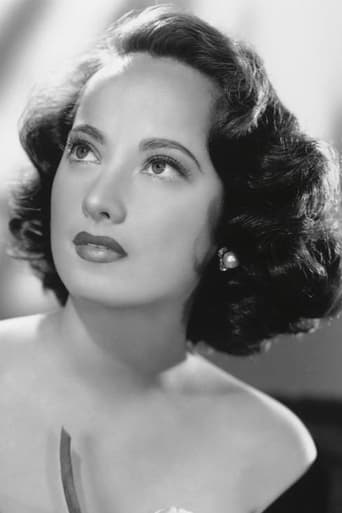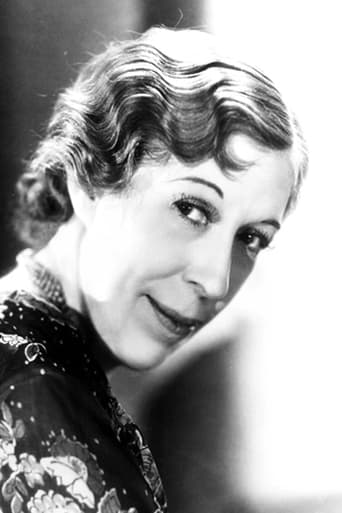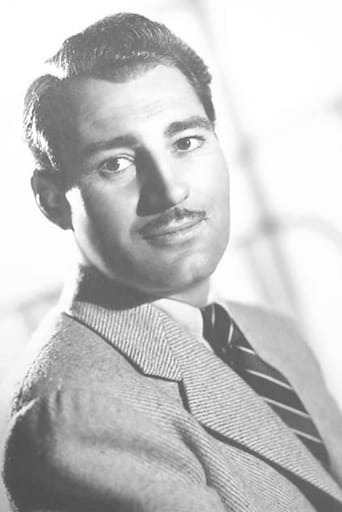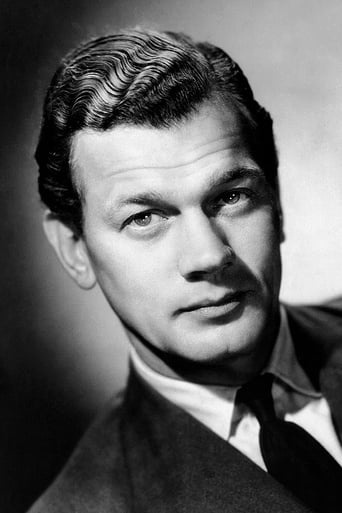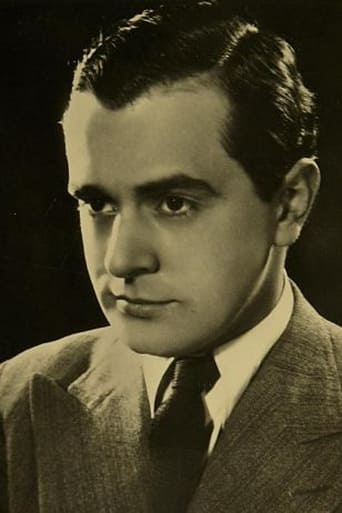ChanBot
i must have seen a different film!!
MamaGravity
good back-story, and good acting
Pacionsbo
Absolutely Fantastic
Merolliv
I really wanted to like this movie. I feel terribly cynical trashing it, and that's why I'm giving it a middling 5. Actually, I'm giving it a 5 because there were some superb performances.
Timothy Shary
For a melodrama with a modest budget, this production is surprisingly sophisticated. You may find the story somewhat plodding, particularly in the first half, but after Lydia discovers her true calling in helping blind children, the cinematography takes on some striking symbolism. You can further appreciate the attention to detail in some of the sets and costumes, particularly when attention is drawn to darkness.Consider that this film was made in 1941 as the U.S. was poised to enter the war already raging in Europe, and women would soon be compelled to work and sacrifice. The romantic repression of Lydia thus seems irrational in context, and the ending suggests as much. It pre-dates the Hollywood work of Sirk, who would critique American clichés in his great '50s films, and similarly exposes some of the delusions of masochistic romance.
edwagreen
Merle Oberon was wonderful here as the spinster who 40 years later meets with the men in her life and dutifully explains why marriage was out of the question with each of them. Did anyone notice that when she spoke as an older woman, she sounded just like Bette Davis when the latter played older parts as well.In what turned out to be her final film, Edna May Oliver was in perfect form as her cantankerous grandmother, still with a heart of gold only because of her humble beginnings before she married into wealth.Too bad that the film didn't concentrate a little more with Lydia's work with orphaned and blind children. The scenes depicting the children were certainly poignant.
ksf-2
Well, as soon as we see that Joseph Cotten and Edna Oliver are in this, we know it won't be a bad film... it was nominated for best Music in a drama, but The Devil and Daniel Webster won it that year. Lydia (Merle Oberon) and Michael (Cotten) meet up in their later years, and reminisce about the past, which we always seem to remember as better than it was. Edna Oliver is (once again)the overbearing, frumpy grandmother who is very set in her ways, and is determined that Lydia will only be with a proper gentleman.Lydia and her old beaus talk about "the grand ball" they had attended in their youth, with the harps, mirrors, and chandeliers, which everyone remembers differently. Then, we flash back to the glorious football game, on which they also disagree. We flash forward, then backward, and forward and backward, and its all a lot of work to keep up with where we are now. It's all done competently, but there are no sparks between her and the men from her past, and its a little like reading a history book. It just seems to be a lot of talk about being in love way back when. Then, about halfway through, Lydia meets up with a little boy who changes her life. Then we find out how Lydia got to where she is today. It's entertaining enough, but not one of my favorite films. Produced by Alexander Korda, who happened to be Oberon's hubby at the time.
Michael
An unexceptionable pleasure to the primary senses of the eyes and ears. This results from a combination of Oberon's lush eyebrows and the pillowy opulence one imagines from a director with a surname like Duvivier. The film is a 'refashioning' of his French-language 'Un Carnet De Bal' from 1937, in that the basic plot is Oberon's portmanteau recollection of 4 past loves. Cynics may understandably dive for the sick bags, but it's a pleasant surprise therefore to find that for all the typical Fox emphasis on visual scrumptiousness, this romantic opus turns out to be a narratively literate affair. It's lent considerable dramatic weight by an excellent cast, including an uncharacteristically unhistrionic Oberon.
